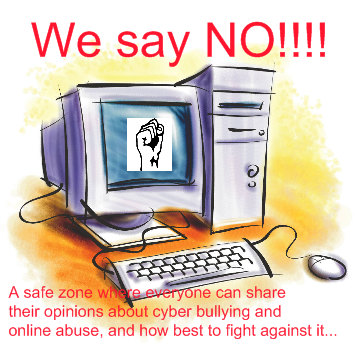
Image taken from
hubpages.comThe idea for this article came from an experience I had just this past week, where I had applied for a job through an online job search website I belong to. There was a casual position going for actors/extras for a talent agency, and I decided to apply for it, firstly because of the fact that it was only a casual position (allowing me to continue my studies, while at the same time earning money), and secondly, it was relative to the eventual career move I plan on making after I finish Uni (teaching drama and music; I could get more acting experience by working for them). They promoted themselves as a highly professional company in their ad, and provided a list of famous Australian TV shows and films that they had managed to get their previous clients into, so I decided, “Well, why not?”
I received a phone call from them the very next day after I had applied, and they asked me all these personal details about me, which was at that point that the “alarm bells” started ringing off in my head (you know the ones I'm talking about – the ones that instinctively tell you when something fishy is going on). I decided not to give them the answers to these personal questions and asked instead if they could send me more information about them, before I made my final decision. The woman I spoke with on the phone agreed and sent me an email with a link to their website, as well as a copy of an application form for me to fill out.
The website did not give me any information that helped me learn more about the company. So I decided to investigate further and “googled” this company. I found a link to a professional acting academy website, where there was a discussion forum set up by people who had onced used this company to further their acting careers, but found out that they got conned. Their purpose of setting up the forum was to warn people to not join this company. What was further interesting was that one of the managers of this talent agency had infiltrated into the forum and started deleting all posts that he felt were “defamatory” towards the company, leaving only the “positive” posts for all to see. One of the people protesting against the dishonesty of this company posted an official government website that listed all of the recognized talent agencies in Queensland – the talent company I applied for was not on that list. All of this information confirmed to me that the “alarm bells” that went off in my head were not just my imagination running wild, but were in fact real warning signs. I decided to write them back and told them that I was withdrawing my application.
The next day, the talent agency spammed my email account with 5 new emails, urging me to fill out the application form. When I did not respond to them, they called and left several messages on my mobile phone to call them back. Today when they did it again, I told them pretty sternly that I would not put up with this any longer, and urged them to remove me from their database. I will find out tomorrow if they have definitely done that or not (if they call me again or not).
This incident inspired me to write this new article, because it can be seen that online scamming is just another form of cyber bullying. The pressure tactics and aggressive nature of this company has led me to believe that online scamming and cyber bullying both fall under the same category, and it is important to be aware of the dangers behind getting involved in such scams.
First of all, what is an online scam?
Online scams come in many different forms. They can come in the form of chain emails, or pop-up advertisements (
Consumer Affairs Victoria ). More often these advertisements promote the possibility of obtaining much wealth and a happier life (
Stay Smart Online )and make promises that are simply “too good to be true” (
www.choice.com.au ).
Ways to avoid online scams:
* Never be quick to trust an email or website from an unknown source, especially the ones that promise you instant wealth and happiness, or that ask you for personal details (such as your phone number, bank details, etc) ( Stay Smart Online)
* Take time to carefully research more about an unknown business company that has attempted to contact you, BEFORE you decide to work for them.
* Listen to the “warning bells” - according to the “Be Smart Online” website, if it looks too good to be true, then it usually is.
If you have seen a possible online scam happening, it is important to find out who you can contact in your country to report these cases, as online scamming is a criminal offence. In the case of my experience with this talent agency, I felt it was important to report to the admin of the job search website about this company.
I hope readers of this article have now received the help and advice they need to be able to effectively deal with online scams....


